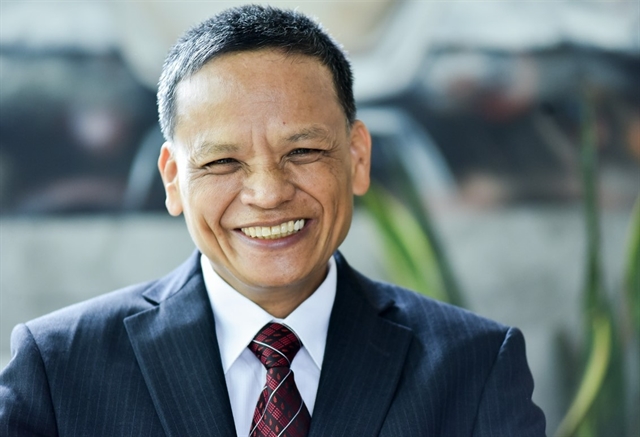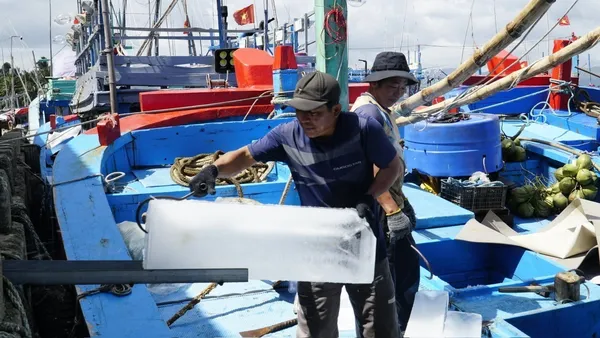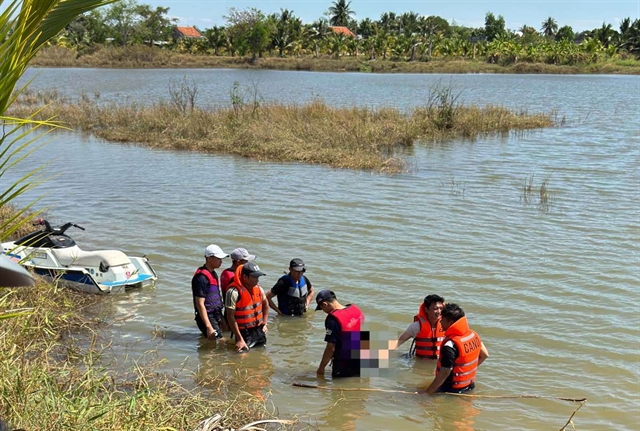 Opinion
Opinion


|
| Dr. Nguyễn Hồng Thao, a member of the UN's International Law Commission for the term 2017-2021. Photo baoquocte.vn |
In 2016, Dr. Nguyễn Hồng Thao became the first Vietnamese to be appointed as a member of the United Nations’ International Law Commission, for the term 2017-2021.
The International Law Commission (ILC) focuses on drafting international conventions and studying major issues of international law. It comprises 34 members elected every five years and working independently from the countries that nominate them.
Dr. Thao has had experience in maritime affairs and diplomacy, with ambassador postings in Malaysia (2011-2014) and Kuwait (2014-2017). His main academic specialisations are in public international law, law of the sea, international organisations, international humanitarian and environmental law.
In a recent interview with Thế giới & Việt Nam (The World & Vietnam Report), he shared details of his work, and preparation for being re-nominated to the position.
How would you describe your first days at ILC? What is your relationship with other members of the Commission?
It was a bit overwhelming the first time I met experts with great experience in international law. I have learned a lot from their research, books, reports, and international conventions.
On the first day, I was fortunate to sit next to two very famous rapporteurs. One was Professor George Nolte of the Humboldt University of Berlin. He was elected as a member of the International Court of Justice (ICJ) last year. Many ILC members have been elected to the ICJ, so people often say that the ILC is the cradle for training judges in international law.
The other was Professor Sean Murphy, President of American Society of International Law. He works as a rapporteur on the topic of ‘Crimes Against Humanity.’
I have learned a lot and received sincere support from both re-elected and new members.
In an environment where there are many experienced experts like this, we can still attract attention in our own way. If we do a lot of research, we can still find areas to contribute to reports of the rapporteurs and raise practical issues for our own reports.
Is there any conflict of interest among the 34 members?
This is a forum for scientific debate and tense debate is unavoidable, but all of them are based on science and respect.
Many times, we have had heated debate on issues including those related to protection of the atmosphere, and provisional application of international treaties.
Or when we discussed the privileges and immunities of state officials in international law, we were aware that this is a difficult issue because it is both legal and political. Because state officials include senior leaders like the president or prime minister. Article 7 regulates some exceptions to the exercise of immunity in international criminal law. However, international crimes are yet regulated clearly so the ILC has had to discuss and offer proposals, based on countries’ contexts, about what crimes against humanity, war crimes and corruption crimes are.
I suggested the crime of aggression be incorporated into the concept of international crimes however it was opposed by members from major countries. The objection was based on legal ground because there was no international legal document that specified this issue. However, we can implicitly understand that if we bring that issue up, many armies of countries stationed abroad will be affected.
With difference in opinion, the commission could not approve the Article 7 and for the first time, members had to vote to decide.
Though there is conflict of interest, what we aim towards are decisions based on science and justice.
Could you share your contributions since you took the role?
In the 70th session of the Commission in 2018, I was proud to be elected Second Vice-Chair. This is a recognition and appreciation for both Việt Nam and my contributions since I was appointed.
In 2020, I published a report on the sea-level rise issue in relation to international law. In November last year, I spoke at a conference about legal implications of the pandemic co-organised by the Permanent Missions of Chile, Portugal, Sierra Leone, Turkey and Việt Nam, and members of the ILC.
Our proposal at the conference is part of the foundation from which our Ministry of Foreign Affairs developed a proposal submitted to the UN General Assembly to mark December 27 as the International Day of Pandemic Preparedness.
ILC members who attended the conference were invited to work with WHO Principal Legal Officer Steven Solomon on July 22 this year on preparing a draft convention on prevention and fighting against pandemics like COVID-19 in the future.
ILC members serve in a personal capacity and do not represent states or governments. What are the advantages and challenges of this?
It is clear that when the members, with deep knowledge of international law, serve in a personal capacity as persons, they speak for the common voice and common desires of mankind. It is an objective voice of person, not a state.
This also creates an environment of academic freedom which enables expression for opposing opinions based on the reality of their country along with their evidence and reasoning. It also helps countries save time in negotiations.
However, it is crucial to resolve issues in a harmonious way to ensure both the interests of countries and the objectivity.
In the report on succession to state responsibility of states for internationally wrongful acts, a Czech rapporteur mentioned Việt Nam’s nationalisation of foreign owned properties in our territory following our reunification.
According to international law, we have to compensate related individuals and entities. Yet the case in Việt Nam was unique as Việt Nam and the US had signed lump sum agreement before. Initially some agreed and some did not. So I had to work with them to reach a conclusion.
Regarding Khmer Rouge genocide, I also worked with rapporteurs to bring the case to the reports including crimes against humanity, environmental protection in relation to armed conflicts, and succession of states in respect of state responsibility.
It is crucial to bring Vietnamese and regional practices into UN legal documents.
Việt Nam's permanent missions to the United Nations (UN) in New York and Geneva have recently sent diplomatic notes to the UN and countries informing the candidacy of you to the ILC for the 2023-2027 tenure. You must have gained considerable experience in preparation for the re-election?
There are a lot of challenges ahead. Country competition to have representatives in international organisations is becoming increasingly fierce.
More and more people with long experience in the UN run for office. Before, members of the commission were mostly people with considerable knowledge and experience in international law. Nowadays, it expands to ministers and legal advisors of countries. They have great experience and a global network of contacts. Moreover, they offer a lot to bargain for.
Việt Nam also wants to have its representatives in international organisations itself. We are campaigning to nominate our candidates into the UN Human Rights Council, the Commission on the Limits of the Continental Shelf and the World Trade Organisation, and are expanding our resources for campaigning.
On the other hand, the ILC has also always welcomed new things and encouraged more female members.
Vilawan Mangklatanakul, director-general of the Treaties and Legal Affairs Department of Thailand and H. Roque Jr., the presidential spokesperson of Filipino President Rodrigo Duterte are also running for this prestigious position.
COVID-19 has made us change the way we do campaigning and be more flexible. Our International Law Department under the Ministry of Foreign Affairs has made leaflets and short videos for Vietnamese representative missions abroad to mobilise support.
Compared to five years ago, we have many challenges and difficulties to overcome.
But as I once said, my formula for success is simple. It includes dreams, creativity, confidence, opportunity and luck.
To reach the desired destination, we must be creative, coordinate well with colleagues and international friends as well as be ready to support everyone, then there will certainly be good things to come at the most unexpected times. VNS




